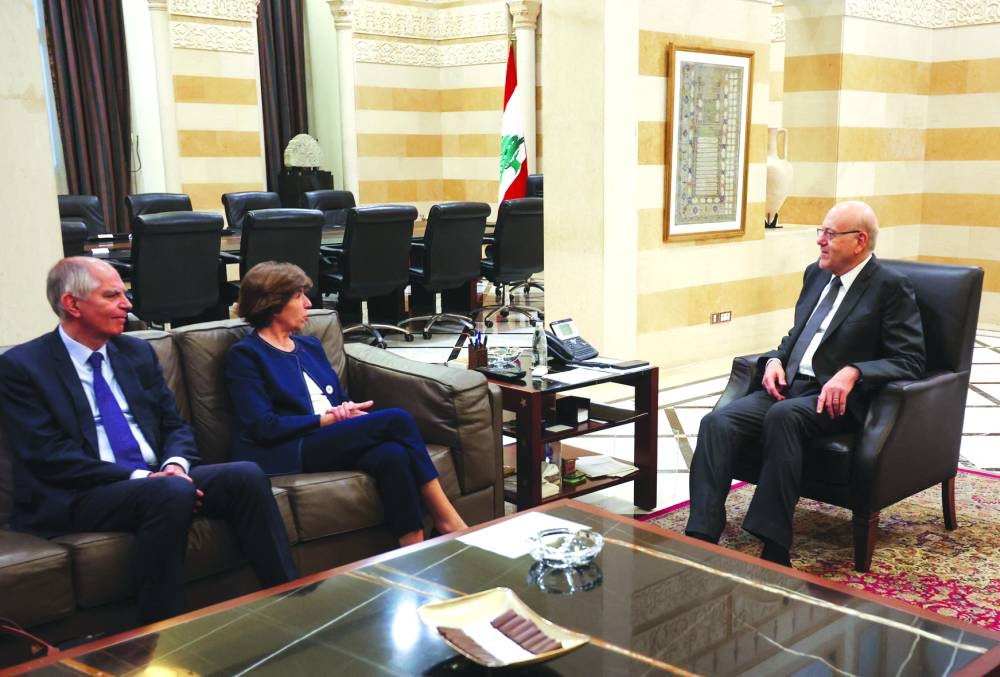France’s Foreign Minister Catherine Colonna on Monday urged restraint in meetings with senior officials in Beirut, seeking to de-escalate tensions along the Lebanon-Israel border amid near-daily exchanges of fire.
Since October 8, the day after the Israel-Hamas conflict started, the frontier between Lebanon and Israel has seen escalating cross-border fire, mainly between the Israeli army and Hezbollah, which says it is acting in support of Palestinian group Hamas.
Colonna met with Lebanese Prime Minister Najib Mikati and parliament speaker Nabih Berri, a key ally of Hezbollah, calling for responsibility and restraint a day after making similar appeals in meetings with Israeli officials.
As concern grows over the humanitarian situation in Hamas-ruled Gaza, Colonna announced a new shipment of 700 tonnes of aid to the war-ravaged Palestinian territory, half of which is set to depart from the French port of Havre tomorrow.
“The other half will depart next week,” she told a news conference, reiterating calls for “a ceasefire... as soon as possible”.
The French top diplomat also discussed the situation on the ground with the commander of the UN Interim Force in Lebanon, Major General Aroldo Lazaro.
The head of the UN peacekeeping mission told reporters ahead of his meeting with Colonna that the situation on the border was “tense” and “dangerous”, as hostilities trigger fears of all-out conflict.
“We are trying to continue with our liaison and co-ordination role... in order to avoid miscalculations, misinterpretations that could be another trigger for escalation,” Lazaro said.
Fears of a widening war have been growing, with other groups attacking US-led coalition forces in Iraq and Syria, and Yemen’s Houthi rebels targeting shipping in the Red Sea. France, which contributes some 700 troops to the UN force in south Lebanon, has condemned recent attacks on peacekeepers and their facilities.
In Israel on Sunday, Colonna called on all parties to “de-escalate” along the Lebanon-Israel border.
“If things were to spiral out of control, I don’t think anyone would benefit,” she said.
Gripped by political paralysis and a crushing four-year economic crisis, Lebanon can ill-afford another devastating conflict between Israel and Hezbollah, which last went to war in 2006.
A French diplomatic source, requesting anonymity, expressed concern that Beirut could underestimate Israel’s determination to protect its borders after the shock of Hamas’ storming.
Foreign Minister Eli Cohen said Sunday that Israel “has no intention to start another front on our northern border” and that France could play a “positive and significant role” in preventing war. But he warned that ensuring Israel’s security meant pushing Hezbollah “north of the Litani River”, some 30 kilometres north of the border.
“There are two ways to do that: either by diplomacy or by force,” Cohen said.
France maintains contacts with Hezbollah, unlike other Western governments.

French Foreign Minister Catherine Colonna meets with Lebanon’s caretaker Prime Minister Najib Mikati in Beirut, on Monday.
